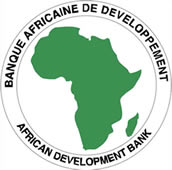The Community Water sector deals with over 16,000 rural communities and some 287 small towns. Management of water supply is the responsibility of District Assemblies with facilitation and oversight role by the Community Water and Sanitation Agency (CWSA). Municipal assemblies and districts are responsible for investment, operation and maintenance of water and sanitation infrastructure within the community water sector. The Environmental Sanitation Sub-Sector covers both liquid and solid waste management and disposal. The institutional framework places the overall responsibility of environmental sanitation with the MLGRDE.
The water supply and sanitation infrastructure is insufficient, especially in rural areas. Major investments are needed to extend coverage as well as rehabilitate and maintain existing infrastructure. Investors for water supply sand sanitation: Point Sources (boreholes/hand-dug wells). Small Towns Pipe Schemes Rain Harvest Plants Household/Institutional Latrines. In addition, investments are needed for construction of physical facilities to achieve: network expansion to poor areas increased reliability of water supply to poor areas to reduce reliance on water vendors. Also, investors are needed to provide water tanker services to consumers.
Investors are needed to invest in the following: Street lighting Improved coverage/access Service efficiency.
Investors are encouraged to invest in the supply of energy-monitoring equipment to better meet the increased requests for power monitoring and tariff analysis from industry in the country.
Investors are needed to provide an alternative decentralized sustainable energy system that can easily be deployed in remote and deprived communities into the overall national energy mix.
Companies to provide solar vaccine refrigerators for the preservation of vaccines for child immunization programmes in remote and off-grid parts of the country.
Provision of solar energy systems to schools in off-grid communities.
New, higher quality and cost competitive energy services to the poor, for cooking, transport, water heating and other home appliances.
REFERENCE: Ghana Investment Promotion Center




































